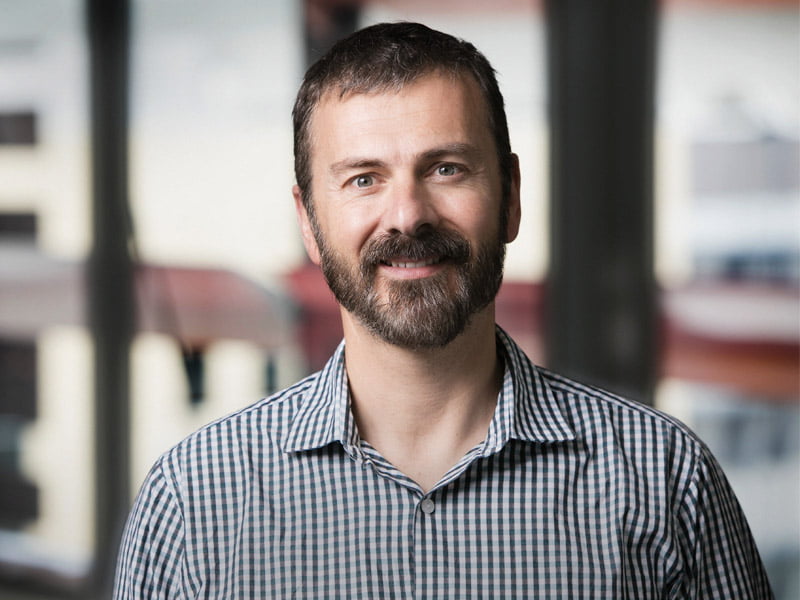Australia does not need a robot tax – but it should take automation and the erosion of traditional jobs a whole lot more seriously.
CSIRO’s Data61 chief executive Adrian Turner has weighed into the discussion about whether companies replacing human workers with robots should be forced to pay a tax for the privilege, arguing that it is neither sensible nor feasible.
It’s a position at odds with that of Microsoft founder and technology advisor Bill Gates, who in a recent interview with the online site Quartz, said that taxing companies that used robots would provide funds to pay for other less easily automated services such as child and aged care.

“Right now the human worker who does $50,000 worth of work in a factory, that income is taxed. If a robot comes in and does the same thing you’d think we’d tax the robot at a similar level,” Mr Gates said during the interview – adding that the funds could come from profits generated from savings.
“I don’t think the robot makers are outraged that there might be a tax,” he said.
Legislators however are not yet convinced, and in February the European Parliament rejected a recommendation which called for robot owners to pay a tax that would fund the retraining of employees replaced by robots.
Mr Turner might not want a robot tax, but he does believe it is time for a serious national conversation about the issue.
Like Mr Gates he believes automation will displace traditional jobs and that there will be profound structural change across many industries.
“We are seeing a microcosm of that with the taxi industry – the demonstrations in Victoria about Uber.
“That is about structural change, which I think we are going to see again with Amazon entering the retail sector in Australia. They will drive structural change all the way back up through the supply chain that will impact transportation and logistics.”
Unlike the structural change from agricultural to manufacturing economies however, which took decades to percolate, Mr Turner believes the age of automation will ramp much faster as platform businesses like Uber, or Amazon scale globally.
“The shift we are going through will accelerate and I do think there needs to be government intervention to make sure people don’t get left behind – but with an emphasis on reskilling,” he said.
“Jobs will displaced but they will ultimately be replaced.”
Not everyone is convinced. A survey of more than 1,000 Australians undertaken in January this year and commissioned by AirTasker found that one in six believed their job could be handled by a robot in the next five years, and more than 70 per cent expected that there would be fewer jobs overall because of automation.
Mr Turner predicts that automation will happen sector by sector depending on the speed at which physical assets can be described by data. Uber for example uses data to create a platform for transport, Amazon for retail.
Australian mines already run without truck drivers thanks to autonomous vehicles; there are ports operating without stevedores. Chatbots are widely used to automate ordering and service delivery, online kiosks such as those in McDonalds and Wendys replace teenagers at the tills, while this week Domino’s announced DRU Assist, a virtual agent that takes pizza orders faster than a human and automates the upsell.
The combination of cloud computing, the Internet of Things, artificial intelligence and machine learning is also allowing automation of roles once considered “safe” such as medical diagnosis, middle management, education, aged care.
In their landmark 2013 paper, The future of employment: how susceptible are jobs to computerisation, University of Oxford researchers Carl Frey and Michael Osborne predicted that 47 per cent of US employment was at high risk of being automated over the next decade or two.
While there is no equivalent Australian analysis, Mr Turner said; “People are fearing this change. We are talking about structural change and people fear it.”
But he stressed that; “We can’t back away from having the conversation as a country. As Australia’s leading data science institution and non-partisan we have the responsibility to continue to have the conversation about what we need to do here.
“This is not a defensive conversation – but how do we take what is right in front of us to set up the country for the next generation, our kids?”
He said that Australia could still create platform businesses able to scale globally if industry was prepared to invest in research and development and innovate rapidly, embrace automation and digitisation.
However despite the economic opportunities, there is a risk that any conversation about robots replacing human workers could turn toxic if the reaction to the recent Fair Work Commission decision on reducing penalty rates is any guide.
Mr Turner warned though that Australia had a very narrow window of opportunity to have that conversation, and that as automation and digitisation took hold there was an; “Obligation on people to not be apathetic. This is a time that Australia needs to sit up pay attention and be engaged in the conversation
“There is a window here and the economics are so different for leaders versus followers that there will be impact for generations if we don’t step up and take what is right in front of us.”
Do you know more? Contact James Riley via Email.

